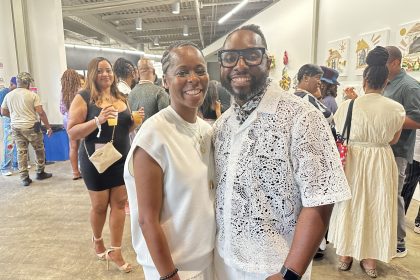When a friend’s life seems to outshine yours, the path forward lies not in comparison but in connection.
The complex nature of friendship envy
Recognizing the emotional landscape
The notification appears on your phone: your friend just landed their dream job, moved into a stunning apartment, or embarked on another enviable adventure. Your immediate reaction combines genuine happiness with an uncomfortable undercurrent of envy. This emotional duality characterizes what psychologists identify as friendship jealousy—a common yet rarely discussed experience that affects relationships across age groups.
Research suggests this phenomenon peaks during transitional life phases when personal identities and achievements become particularly salient. The cognitive dissonance between wanting to celebrate someone you care about while simultaneously feeling diminished by their success creates internal tension that can strain even the strongest friendships.
The digital age has amplified these feelings considerably. Social media platforms present curated highlights of friends’ lives, creating an endless stream of comparison points that rarely acknowledge struggles, setbacks or the mundane reality behind glamorous posts. This constant exposure to idealized versions of others’ experiences intensifies the perception gap between your life and theirs.
The psychology behind the comparison trap
Understanding the deeper mechanisms
Friendship jealousy typically stems from perceived scarcity—the subconscious belief that success exists in limited supply. When operating from this mindset, another person’s achievement feels like it diminishes your own possibilities. This zero-sum perspective transforms friends into unwitting competitors rather than allies on parallel journeys.
Self-reflection reveals that jealousy often highlights personal insecurities or unacknowledged desires. The elements triggering strongest reactions frequently point toward unexplored ambitions or values you privately hold in high regard. The colleague’s promotion that provokes envy might reveal your own professional aspirations; the friend whose relationship makes you uncomfortable might reflect your desire for meaningful connection.
Experts in interpersonal psychology note that comparison becomes particularly painful when it touches on core aspects of identity. For individuals who strongly value professional achievement, academic success or creative recognition, witnessing friends excel in these domains can feel especially threatening. Similarly, those who prioritize relationships or family life may struggle when peers reach relationship milestones ahead of them.
Transformative approaches to handling envy
Reframing jealousy as growth opportunity
Addressing friendship jealousy requires moving beyond simple acknowledgment toward active recalibration of perspective. Mental health professionals suggest several evidence-based strategies that transform these challenging emotions into catalysts for personal development.
The first step involves practicing genuine curiosity about what specifically triggers jealousy. Rather than dismissing the feeling as petty or shameful, approach it with gentle inquiry: What about this particular achievement resonates so deeply? Which personal values or aspirations does it highlight? This analytical approach converts emotional reactions into useful self-knowledge.
Cultivating abundance mentality represents another powerful intervention. This mindset shift recognizes that success isn’t finite—one person’s accomplishment doesn’t reduce opportunities available to others. In fact, having successful friends often creates networks that benefit everyone involved through shared connections, knowledge and resources.
Building relationship resilience
Strengthening connections despite differences
Navigating disparities within friendships requires intentional communication and boundary setting. Research indicates that relationships flourish when participants can acknowledge uncomfortable emotions without allowing them to dominate interactions. This balanced approach prevents jealousy from festering into resentment.
Creating space for vulnerability transforms potentially divisive feelings into connection points. When appropriate, sharing your struggle with jealousy—while taking full responsibility for the emotion—can deepen intimacy. This disclosure, when handled maturely, often reveals that the seemingly perfect friend experiences similar insecurities from different angles.
Relationship experts recommend diversifying your social interactions when particular friendships consistently trigger comparison. Expanding your circle provides perspective and reduces unhealthy fixation on any single relationship. Different friends naturally highlight different aspects of your personality and possibilities.
Channeling envy into inspiration
Converting comparison into motivation
The most transformative approach reframes jealousy entirely—viewing friends’ achievements not as indictments of personal inadequacy but as evidence of what’s possible. Their success serves as living proof that desired outcomes exist within reach, offering concrete models rather than abstract aspirations.
Developmental psychologists highlight that observing peers achieve goals similar to your own activates visualization pathways in the brain, making abstract ambitions feel more tangible. While comparison can diminish motivation when focused on gaps, it enhances performance when redirected toward learning and strategy.
The concept of “inspired action” combines emotional response with practical steps. This approach acknowledges the emotional reaction while immediately redirecting energy toward concrete action: What specific habits, skills or practices contribute to the success you admire? How might you authentically incorporate similar elements into your own life?
Moving beyond comparison
Cultivating personal authenticity
Ultimately, sustainable happiness requires developing metrics of success aligned with personal values rather than external comparisons. Psychological research consistently shows that extrinsic motivation—driven by comparison and external validation—produces less fulfillment than intrinsic motivation based on personal meaning and growth.
The practice of values clarification helps identify authentic priorities distinct from socially imposed measures of achievement. This process involves examining which activities and relationships consistently produce genuine satisfaction versus those pursued primarily for status or recognition.
Mindfulness techniques enable greater awareness of comparison triggers before they escalate into full emotional reactions. Regular practice develops the capacity to notice comparative thoughts as they arise and consciously redirect attention toward gratitude for personal circumstances and appreciation of others’ journeys without immediate self-judgment.
Embracing parallel paths
The healthiest approach to friendship jealousy recognizes that lives unfold along distinct timelines with different challenges and advantages. Accepting this natural variation frees relationships from unnecessary competition while preserving their supportive function.
By transforming envy into inspiration, uncomfortable feelings become catalysts for authentic growth rather than sources of division. The friend whose success initially triggered jealousy may ultimately represent not a comparative measuring stick but a valuable ally whose journey illuminates possibilities on your own distinct path forward.

















